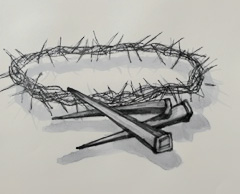“In this you greatly rejoice, even though now for a little while, if necessary, you have been distressed by various trials, so that the proof of your faith, being more precious than gold which perishes though tested by fire, may be found to result in praise, glory, and honor at the revelation of Jesus Christ.”
1 Peter 1:6-7 (NASB)
From time to time, we need to revisit the single most distressful period in our lives, because according to this scripture, those trials brought out the gold in our faith. There’s a period of testing that purifies our faith, the way gold is purified in a furnace. As we stand the test of faith through fire, we become transformed, and the fiery test turns into a testimony, bringing glory and honor to Jesus.
In 2018, my late husband, Stephen, received the diagnosis of ALS, or Lou Gehrig’s disease. It’s an incurable disease which causes progressive weakness and atrophy in all the muscles of the body, while the mind remains perfectly intact. While caring for him at home, the ALS foundation assigned a nurse to check in with me once a week and help oversee his care. Each week, that nurse came to our home, she would order another machine to help in his home care.
Just when I became trained and familiar with one machine, she would send another one the following week or two. She also sent a person to train me in the use of each machine. One machine was for breathing, one for suctioning, and another to give liquid tube feedings and medication through the stomach. While I was thankful to have help and supplies to care for him at home, rather than in a Nursing Facility, I still felt pretty overwhelmed and inadequate.
I remember thinking at the time, that it was all too much, and I used to tell God “I don’t think I can do this, Lord,” but He always had the same three word answer, “Yes, you can.”
Not only did I feel inadequate for the task, I felt like I was failing every test of virtue, often losing patience, faith and trust in God. I couldn’t see how anything good was coming out of the whole situation or what wisdom could be gained during that period. Years later, I came to know without a doubt, that God was there with me all along.
My years of working in health care, were in the field of neuromonitoring as a technologist, not a registered nurse, so my work experience was nothing compared to what was required of me, while taking care of Stephen. With each new challenge, I kept telling God, “Lord I cannot do this, it’s beyond my skills.” The Holy Spirit kept giving me that same answer, “Yes you can.”
That year was quite an ordeal and I did adjust to all those machines and everything I needed to do. It was still a fiery trial of testing for both Stephen and myself, as the disease rapidly progressed, until he passed away in his sleep in 2019.
Peter wrote about times of extreme distress like this, in his epistle, saying that our faith is being tested as gold is tested, by fire. He told us to rejoice because we are sharing in the suffering of Christ. Jesus knows about all that we are going through, and we also get a tiny taste of what Jesus went through.
Caregivers are pushed to the limit, sacrificing time and sleep, and yet, oddly, it always felt like the natural thing to do, while caring for a terminally ill loved one. Anyone who has ever been a caregiver can relate to what I am saying.
Peter also wrote that we shouldn’t be surprised at the fiery trial which comes upon us, as though something strange were happening, but rather encourages us to rejoice that we share in Christ’s sufferings. (1 Peter 4:12-13)
Besides Peter, Paul also wrote mysteriously about suffering, that we can know the power of his resurrection through participation in His sufferings. (Philippians 3:10)
We don’t realize in the moment, that the fiery trial is a way of sharing in Christ’s suffering, or that it is purifying our faith, like gold.
In hindsight, I know now that the Holy Spirit was coaching me all along, producing perseverance and strength in me. He is making all of us stronger and better people than we were before the trial. Our suffering also enables us to empathize with those who suffer in a similar way.
There’s a reason scripture says that God is near to the broken-hearted and saves those who are crushed in spirit. In our distress and brokenness, we develop a unique closeness to Jesus.
I may never fully understand the benefit of suffering, but I know that when I felt the most helpless and hopeless, and kept telling God, I don’t think I can’t do this, the Holy Spirit kept saying, “Yes, you can.”
Through His resurrection power, I can and I did. We can do all things through Christ.
Lord, help all today who feel helpless or crushed in some way, thinking they cannot do anymore. Fill us with your resurrection power so that we can and will do all things through Christ. Amen





